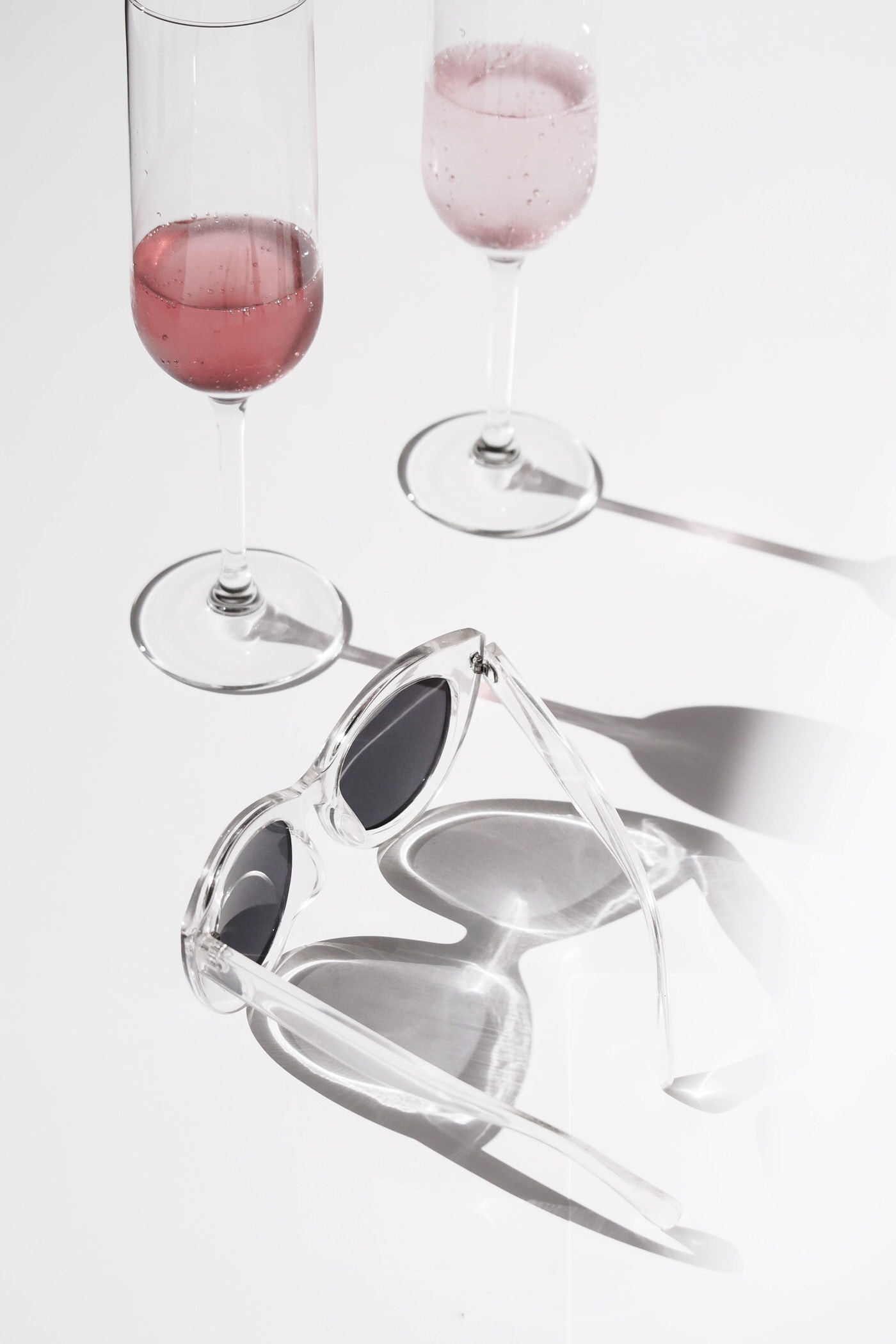Natural wines are taking off globally as more people are becoming intersted in how their favorite wines are made and the impact they leave on the environment, and our bodies. But picking a natural wine can be confusing with labels like biodynamic, organic, and sustainable all being used to describe natural wines, and consumers being left wondering which option really is best. To help clear up some of this confusion, I decided to dive into the complex world of natural wines with one of our favorite brands Dry Farm Wines to discuss what really makes a wine “natural”, and what consumers should be on the look out for when choosing their next natural wine.
Can you tell us about how Dry Farm Wines was founded and why natural wines, and making them more accessible, is so important to you?
Our Founder, Todd White, is a serial entrepreneur and fanatic about health. While he changed his diet, took up meditation, and honed his physical fitness, he was still feeling negative reactions from red wine. He decided to look for a healthier alternative.
Enter natural wines, a movement amongst a few artisanal wine growers in Europe to produce wines without human intervention.
Todd found that natural wines were without sugar, lower in alcohol, and lower in sulfites. He immediately noticed that it changed how he felt when he drank: it was a cleaner buzz without negative impacts on his health. He set out on a mission to share this wine with the US market in the hopes of helping wine drinkers stay healthy and still enjoy wine.

What is the difference between natural and commercially produced wine?
There are many. Here are the top 3:
No commercial processing. Natural wines are not processed like commercial wines. Commercial wines are made with industrial additives, heavy machinery, and farming chemicals. This creates a mass-produced, shelf stable product. Natural wine does not contain any of this. It’s wine that is naturally alive with beneficial gut bacteria and antioxidants, made from two simple ingredients: organic grapes and wild yeast.
Smaller farms. Commercial wines come from large corporations that hide behind smaller brands. Natural wines come from small, family farms working with respect for nature. They follow organic or biodynamic farming practices that remove human intervention whenever possible.
Vibrant taste. Commercial wines present the same taste: heavy, full body with high alcohol, and sweeter finish. Natural wines taste different. They are alive, so they taste more vibrant and fresh. Plus, they go better with food since they do not contain heavy flavor additives or dyes.

What do you wish more people knew about commercially produced wines?
Heavy use of additives. The FDA approves 76 additives for use in winemaking in the US. The consumer would not know this because wine lobbyists fight hard to keep contents labels off wine bottles. Legal additives included.
High alcohol. Since the 1990s, wine alcohol levels have steadily increased. In 1992, the average was 12.7%. In 2009, it jumped to 13.8%. Today, it averages nearly 15% and climbing. Wine corporations love high alcohol because it’s addictive. But alcohol is toxic, and can be harmful if consumed in high doses.
Several terms are often often used in relation to natural wines - can you describe the differences between Biodynamic, Organic, and Natural wines?
Biodynamic is a certified method of farming that focuses on increasing biodiversity of the farm by creating a complete ecosystem. This includes composting, planting native flower species, and picking grapes by the sun/moon cycles. The biodiversity strengthens soil bacteria, leading to healthier, polyphenol-rich wines with thoughtful complexity of flavor.
Organic is a certified method of farming that does not allow the use of fertilizers, pesticides, and some other chemicals in the vineyard. Organic farming increases soil health and promotes stronger plants that fight for themselves instead of relying on the help of man made chemicals.
Natural is not a legally defined term, but it refers to a powerful idea: to make real wine, you must remove humans as much as possible. Nature has all the tools it needs to produce healthy, tasty wine: wild native yeasts, organic grapes, soil, sun, wind, and rain.

What are the health benefits of choosing a natural wine over a commercially produced wine?
The health benefits of natural wine are many. The most important is the natural compounds such as nutrients, antioxidants, and polyphenols found in natural wine. These compounds have been sterilized in commercial wines, but they are plentiful in natural wines. Polyphenols, for example, help remove harmful gut bacteria while feeding good ones.
Also, since wine is a fermented product, it contains certain probiotic bacteria that can help reduce gut inflammation.
Just look at the Blue Zones - the areas of the world with the longest living people without disease. The Blue Zones in Italy and Greece, for example, consider wine part of their daily consumption, and studies show it contributes to their heart and brain health.
Sulfites can cause issues for many wine lovers. Can you describe what sulfites are and how you limit them at Dry Farm Wines?
Sulfur dioxide - commonly known as “sulfites” - is a preservative. It is used in many foods and beverages, such as potato chips, dried fruit, and wine. It stabilizes many potentially volatile compounds so the product can travel better and last longer on shelves.
Sulfites are naturally occurring in wine as a by-product of fermentation. So while it is exceedingly rare to find wines without any sulfites, we look for wines with minimal levels (less than 75ppm). To give you an idea, acceptable levels in the US can reach 300.

How do you see our climate crisis impacting the wine industry? What does Dry Farm Wines do to support sustainable farming and wine production?
Sustainable farming is in crisis now more than ever. With the expansion of commercial farms and increased demand for food and drink products, farmers opt to use chemicals like glyphosate and practices like manmade irrigation because they increase yield and profitability.
We support the opposite approach. Small, organic, and biodynamic farms can make a real impact by restoring the health of our planet.
Their focus on biodiversity - preserving native species and planting new ones - helps protect against huge monocultures and chemical use. Plus, our growers do not irrigate their vines. It is one of our core principles. Instead, they rely on natural water sources like rain and subterraneous water supplies. This dramatically helps save water use.

How are you working towards making it easier for people to gain access to natural wine?
Natural wine is a premium product that is hard to find in the US. That’s because it can only be made in small batches and is often found in Europe, where wine has been produced for thousands of years. Our mission at Dry Farm Wines is to bring this naturally inspired, healthful product to as many people as we can in the US.
We travel to Europe to source these wines. Then, each wine is lab tested by a certified wine lab to meet our health specifications. This ensures a pure product. Next, we hand pack selections of 6 or 12 bottles as part of a membership program. You can receive boxes as often as you’d like, and every box we send you is unique and full of new tastes and styles.
In each box, we focus on delivering pure taste and new experiences. You can enjoy local grape varieties and regional styles that are rare in the American market (as well as the classics). And we do something most wine clubs will not: we offer a 100% Happiness Promise. If you do not like a wine for any reason, we replace or refund it without fees or surveys.

Lastly, what is one recommendation you would give to consumers when purchasing wine?
It is virtually impossible to find our high quality, lab tested wines in stores and restaurants. But, here are a few tips to get you close:
- Choose organic or biodynamic wines.
- Drink wines mainly from Europe (our favorite countries are France, Austria, and Italy).
- Look for the alcohol content on the bottle and choose anything below 12.5%.
- If there is a wine specialist or sommelier present, ask for wines that are “fully fermented” - i.e., less than 1g of sugar.
